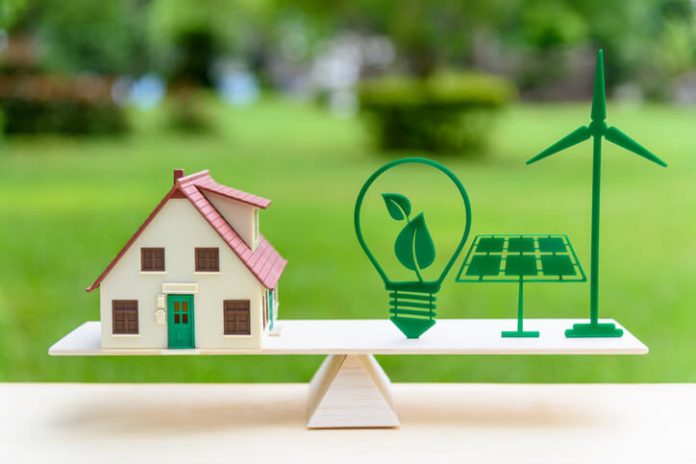Saving money while maintaining energy efficiency in your home is a great deal. There are plenty of underutilized or overused electric devices in your home. Which are both power-hungry and costly.
As a result, you are not only spending hard cash on maintenance but also electricity bills. In my opinion, consumers find it challenging to make a rational choice when dealing with home energy. And I would not blame the consumers.
The major problem with home energy is the traditional technology that sucks energy. And it is not an easy job to get rid of home energy products because of myths surrounding the alternatives. However, there are other ways in which dealing with home energy can be cost-effective. One is by exploring competitive energy rates through services like Utility Bidder, homeowners can unlock additional savings on their utility bills.
In this blog, I will discuss nine ways you can save money. All you need to do is to do a little bit of home energy management. So, without any delay, let’s get started.
Home Energy Management
Your family will be happy in an energy-efficient home while you can also save money. In addition, you’ll see reduced energy bills if you take small steps or make more significant investments to make your home more efficient. Those reductions will typically pay the expenses of upgrades and put money back in your pocket over time. When you sell your home, it may also be more attractive to buyers.
1. Assessment
Expert assessment is what most homeowners lack today for proper energy management. So, first thing first, do not hesitate to call an expert, either state-owned or private. Their job involves a thorough assessment of your home energy equipment using state-of-the-art testing equipment. As an outcome, their analysis would give you an estimate of proper energy management. And how you can cut down on the cost. These experts particularly look for the gaps such as the following:
- Air leaks lack insulation
- Faulty equipment
- Power-hungry devices
- Heating and cooling systems
- Leaky windows and doors
After a brief assessment, the inspector analyzes the compatibility of your home’s power systems and compares results to your utility bills. That will be like a transcript for you to note, which will allow you to have two options. First, to take minor action wherever necessary. For example, if the assessment suggested that you must replace your lighting system. It is a minor upgrade worth considering.
On the contrary, if the evaluation indicated that you must return your heating and cooling system. That accounts for quite an investment. In my opinion, it is up to you because you are the sole owner, and you know what is best for you. However, I will emphasize that the sooner, the better. Suppose you did not take action at the right time. It would either cost you maintenance or the next month’s electricity bill. So, a word to a wise!
2. Why upgrading to solar is cost-effective?
Solar installation has grown considerably in recent years. The primary reason behind this development is the government-backed incentives and cost-effective solar products. The solar market is hot, and the competition is high, resulting in the healthy deployment of affordable panels. In addition, the efficiency of decentralized solar power is apparent in large markets.
Though, notable differences exist across countries. Nonetheless, it indicates the potential for further improvements. So what is here to learn? It is simple, and there are two primary reasons that solar is essential for you. To begin with, it reduces utility bills, and there is no doubt that it is what we all want too. Additionally, solar panels are eco-friendly. Even if your foremost priority is cost, still upgrading to solar is a decision worth taking.
A few benefits of Solar Technology:
- By 2050, the solar PV sector will employ more than 18 million people, five times as many as it did in 2018.
- High possibility of incentives on solar equipment for consumers by the government
- An increase in the property value because of a concrete policy and market competition
- Modern home designs will be more suitable for renewable products, unlike your traditional light bulbs, fans and ACs.
Keep this all in your mind and think twice. If it makes sense, consider buying everything solar.
3. Get rid of old lighting systems
What is LEDs?
Solid-state lighting, which includes light-emitting diodes (LEDs), is a form of lighting (SSL). LEDs are tiny portable elements that convert electricity into light, unlike incandescent or compact fluorescent lamps (CFLs).
Benefits of using LEDs:
- LED lights are very compact, extremely robust, and come in a wide range of colours and patterns.
- They are environmentally friendly since they include no mercury and thus do not produce infrared (IR) or UV (UV) light.
- The cost of manufacturing LED has reduced, so will the cost to buy LEDs
- LEDs are still more expensive than their incandescent equivalents, although their costs are continuously decreasing.
- They help you save on energy bills
- Excellent for home decor, so they also add more value to your property
- The overall vibe that LEDs illumination generates is cool
4. Energy star rating products
All ENERGY STAR-rated products go through comprehensive efficiency testing by a third party. Besides, their performance is high, and the cost is effective. As a result, your end deal is one that saves you money not only as a longer gain but also as an instant relief.
5. Energy-Efficient Monitors
Let’s discuss the facts first. An average monitor consumes 20 to 100 watts of energy. The power consumption is subject to three important peripherals:
- Screen size
- Resolution
- Model
For example, if you’re using a regular 21-inch monitor for 3 hours every day, you’ll consume 0.3 kWh or about 0.01 $ per day.
6. Use your computer hardware efficiently
You can save energy, but you must use your computer on a daily basis, right? So, suppose you’re not using your computer, you still might turn it off. Even when turned off, a plugged-in PC or electric appliance uses backup power.
Some useful tips:
- I would highly recommend you to purchase new models with small size and energy star ratings.
- When you’re not using your desktop computer or accessories (such as speakers and monitor), turn them off at the surge protector to minimize the energy wasted by background activity and standby power.
- You should not use a screen saver because a screen saver not only keeps the computer from shutting down but also draws power for the monitor.
7. Ceiling fans
Most homes have ceiling fans, but in case you do not have them. Consider buying a few. Because ceiling fans are quite cost-effective and they also save energy. A normal size ceiling fan would not cost you a fortune compared to the AC or other devices. Replacing your old ac with efficient ceiling fans is no joke. And here, I am very particular about those homes with huge unoccupied spaces. Or those, where the climate is not too hot.
8. Use cold water for washing clothes
Hot water comes at a price, whereas cold water is free. I am not talking about freezing cold, a normal cold would do its work. It is a simple tip, which takes no capital or extra effort, rather a change in your behaviour to deal with the things you have to deal with every day.
9. Get rid of unnecessary electrical equipment
Now that you have a solar panel on your rooftop, an inverter AC in your bedroom and a power-saving computer as a workstation. Do you still need that old equipment? I would say a big no. A: They occupy space. B: You cannot help but use them either in your storerooms or for additional usage. Come on! People do it all the time. So, kill this habit of using what is no more a viable solution. Instead, get rid of those unnecessary devices and make use of the money in something more efficient.
Disclaimer: This article contains sponsored marketing content. It is intended for promotional purposes and should not be considered as an endorsement or recommendation by our website. Readers are encouraged to conduct their own research and exercise their own judgment before making any decisions based on the information provided in this article.



































